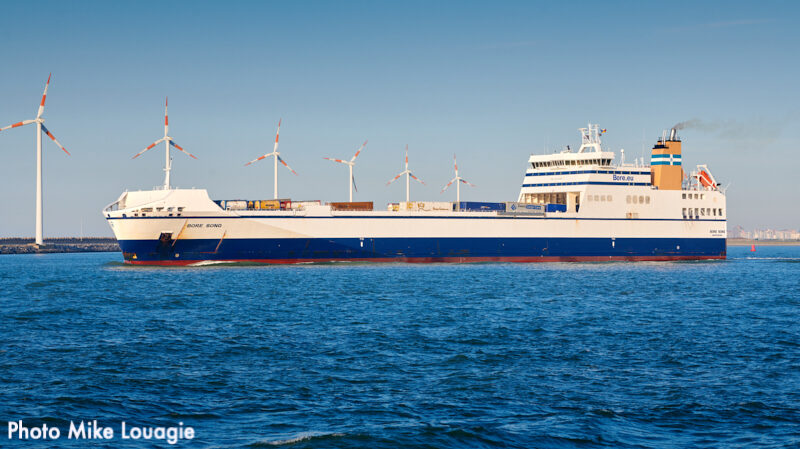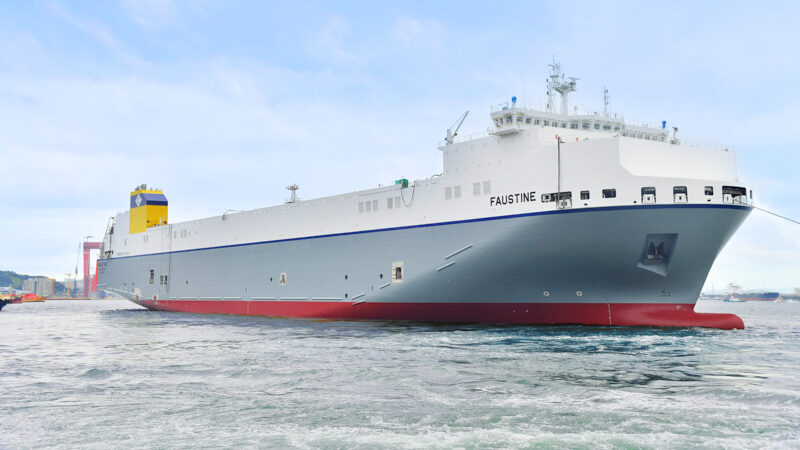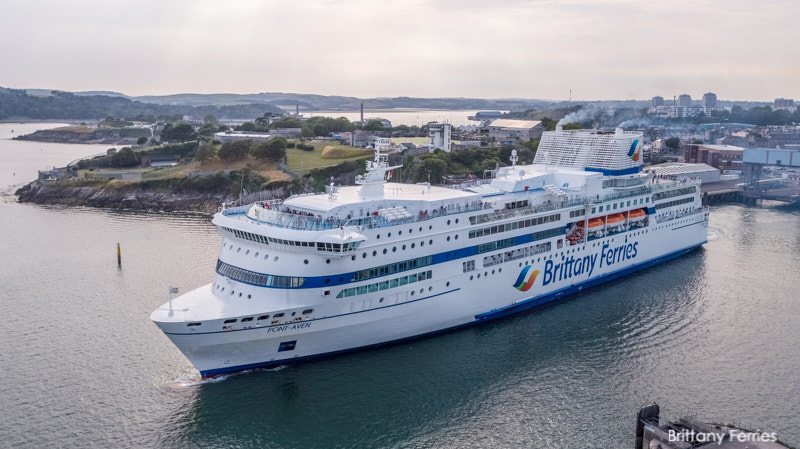At the 24th edition of the annual Grimaldi Group EuroMed Convention held in Valencia, CEO Emanuele Grimaldi gave the traditional overview of the company’s numbers and business trends. The key issue of the event was ‘energy efficiency’.
Ferry – freight: Total volumes in September 2021 were 1.9% below 2020. Net adjustments for structural route changes reduced growth 1.7 ppt to -3.6%.
- Med: well above 2020
- Baltic: on level with 2020
- North Sea: below last year due to headwind from lower automotive volumes and truck driver shortage in the UK.
- Channel: slowdown continued driven by the UK truck driver shortage and other supply chain bottlenecks. DFDS’ Channel volumes were below 2020, including the Dunkirk-Rosslare route opened at the beginning of 2021.
- Volumes for all business units, except for Channel, were above 2019.
Ferry – freight: Total volumes in September 2021 were 1.9% below 2020. Net adjustments for structural route changes reduced growth 1.7 ppt to -3.6%.
- Revenue (£m) 865.7 (1,071.0)
- Gross Profit (£m): 22.7 (106.4)
- Operating Loss/Profit (£m): -97.7 (12.8)
- Loss After Tax (£m): -105.3 (-1.9)
- EBITDA (£m): -25.6 (84.4)
2020 was a year of uncertainty and disruption across the business, caused by the Covid-19 virus and resulting global pandemic. This led to a decrease in revenue in all areas of the business. Costs outside of exceptional items, have reduced in the year as a result of the limited trade.
- Freight units: 1,952,000 (2,106,000)
- Tourist vehicles: 401,000 (1,430,000)
- Passengers: 2,727,000 (7,795,000)
- Ferrymasters total units transported: 535,000 (553,000)
On Friday 8 October, Hyundai Mipo Dockyard delivered FAUSTINE to CldN.
-First LNG-powered ro-ro ship built in Korea
-First LNG vessel for CLdN
-337m3 LNG fuel tank in 9% nickel steel, which can maintain excellent strength and impact toughness even at a cryogenic temperature of -163°C
-Shaft generator
-Four thrusters
-Length 217m | Width 32.2m | Speed of 17.6 knots
Caledonian Maritime Assets Limited (CMAL) and the University of Strathclyde have secured a £30,000 grant to fund a six-month research project to explore the technical, operational and commercial viability of using zero-carbon fuels to power ferries.
The project, called Lifecycle Energy Solutions for Clean Scotland/UK Maritime Economy, is a feasibility study that will explore the most effective solutions that will drive down carbon emissions from the maritime sector.
CMAL’s team of ship designers, naval architects and marine engineers will work alongside marine academics and researchers at the University of Strathclyde to conduct a life cycle assessment on the viability of using ammonia, hydrogen, and main grid electricity for ferries. The team will design robust business scenarios based on 23 ferries on 27 routes on the west coast of Scotland, including highly reliable predictions of the costs and benefits of the proposed alternative fuel sources and a comparison to the use of diesel.
A study commissioned by trade association Interferry has revealed startling statistics on the far-reaching extent of the global ferry industry’s value to the world economy.
Research into the latest pre-Covid full-year figures found that, in 2019, ferries carried 4.27 billion passengers – on a par with aviation – and 373 million vehicles across a worldwide fleet of 15,400 vessels. Among other findings, the industry provided 1.1 million jobs, contributed $60 billion to the world GDP and represented approximately 20% of shipping’s economic value to the European Union.
On October 6, the Board of Directors of Kalymnos Shipping Company (ANEK) completed all the necessary investigation procedures about the shipyard that will build its new “high-speed” craft vessel. The order was given to the OCEAN Shipyard of the Symian shipbuilder Mr Michael Moschatou.
The ship will be 27,30 meters long with a carrying capacity for 200 passengers and a service speed of 25 knots. The construction time will be 9 months.
On October 6, 2021 the Hellenic Republic Asset Development Fund (HRAD) transferred an additional 16% of the shares of Piraeus Port Authority (PPA) SA to COSCO SHIPPING (Hong Kong) Co., Limited. The completion of the transaction came after the ratification of the relevant amendment by the Hellenic Parliament. COSCO SHIPPING paid to the HRAD EUR 88 million plus accrued interest of EUR 11,87 million and a letter of guarantee of EUR 29 million.
Following the successful installation of the Norsepower Rotor Sail on the hybrid ferry COPENHAGEN in 2020, and a year of demonstrated results, Scandlines has prepared the sister ferry BERLIN for its own Rotor Sail installation.
Scandlines’ COO, Michael Guldmann Petersen, commented: “We expected COPENHAGEN Rotor Sail to provide a 4 – 5% CO2 reduction. That expectation has been met.”
BC Ferries’ sixth Island Class ferry is now on its way to British Columbia after departing Damen Shipyards Galati in Romania on October 11.
Island 6, as it is temporarily named, is the last in this series of newly built Island Class ferries to join BC Ferries’ fleet.












